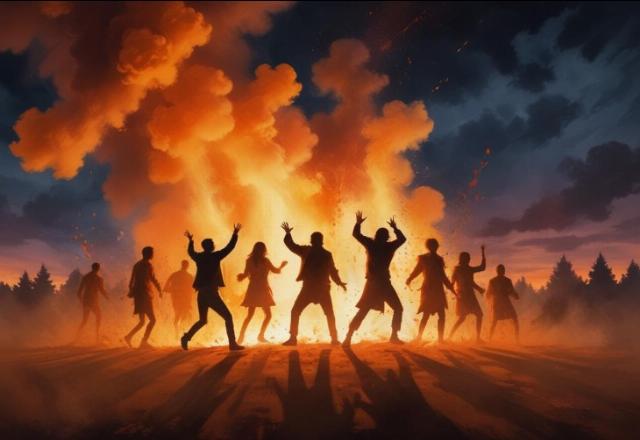“Our democracy is safe for now,” she wrote. This was a Facebook post from someone I know, who was gloating over the guilty verdict in the show trial of Donald Trump. It was followed by several gushing comments. Neither my acquaintance nor any of her respondents seemed to realize that railroading an opposition candidate does not augur well for anyone’s democracy.
Why do people believe what they believe? Why are reasonable people so unreasonably partisan? Why can they tolerate anything other than an opposing point of view?
I began to puzzle over such things when, as a fairly liberal student in the sixties, I first noticed how quickly the civil rights movement and the anti-war movement converged. I remember actually being surprised when posters appeared announcing protests with the joint purpose of advocating civil rights and ending the Vietnam War.
It seemed odd to me. Why couldn’t someone be for civil rights and also support the military engagement in Southeast Asia? What did discrimination against black people have to do with whether or not it made strategic sense to forcefully resist communism in the jungles and rice paddies of Indochina?

Image by AI.
But you see, I was trying to work out this problem logically. I didn’t understand that the campus outbursts taking place then (and now) were a manifestation of something essentially tribal and emotional. In time, it occurred to me that people often stake out a position first and do their thinking about it later, if at all.
The position somehow becomes indispensable to the person. It is an emotional attachment, an allegiance, an identity. This is why gay students can clamor vociferously for Hamas, despite the certainty that they would be living under a death sentence in Islamist territory. This is also why someone who has known me for more than a decade as a client and friend could say, “I thought you were a progressive.” Before we had ever discussed politics, he just assumed I was a member of the tribe.
Some of this has to do with the fact that thinking people can be far more emotional deep down than they like to let on. But a lot of this also has to do with the herd instinct, which is incredibly strong and affects people on both sides of the political aisle, sometimes to an absurd degree.
I’ll give you an example: I was once on an express train In New York that, for one reason or another, was taken out of service. In fact, the whole “E” subway line was disrupted. Passengers were instructed to transfer to another line on a lower level of the station.
It was a Saturday afternoon, and the train was packed. A couple hundred people paraded en masse through the station and down a rear stairway to the designated platform, crowding it end to end. People were wedged together like Times Square on New Year’s. A mildly populated “R” local then arrived, and a couple hundred people stuffed themselves into it.
Just three passengers—I was one of them—hung back. We three didn’t descend the stairs until that overcrowded local departed. The platform was now deserted. Within minutes another “R” train noised in with plenty of seats for all. A couple of hundred people had an uncomfortable ride on the plodding local ahead of ours.
That’s the herd instinct with a vengeance. Mix well with ideology, hubris, and an intoxicating fifth of self-congratulation, and you get the progressivism of the Democrats. Turn up the heat sufficiently, and you get instances of ideology running wild. The herd loses its collective head—figuratively. Its victims often lose theirs literally.
Tribalism is generally, but mistakenly, associated with primitive peoples and cultures. But, as the Trump travesty demonstrates, it may well be more menacing in its modern guise.
A hundred years ago, an explorer named Gordon MacCreagh (1886-1953) set out on an uncharted tributary of the Amazon. The territory he penetrated was known to be inhabited by a “lost” tribe with a hostile repute. MacCreagh and his associates beached their canoe on a remote slip of sand and set up camp. Before long, movement could be discerned in the surrounding bush. Garishly painted warriors, scores of them, slowly emerged, armed with fearsome weapons.
It was a tight spot, but MacCreagh was a savvy fellow. He had taken the precaution of obtaining a stick from more peaceable inhabitants downriver—a stick carved in a certain way as to constitute a passport. It was, essentially, a symbolic letter of transit.
The stick worked. MacCreagh and his partners were accepted as friends and honored guests. They spent the ensuing months with their jungle hosts and were allowed to witness and participate in the “Devil-Dance” and other ritual observances.
Our problem with the progressives is that, in Biden-era politics, there are no sticks.
Sheldon Bart is writing a novel based on a true incident abroad when ideology ran wild.
Source link

